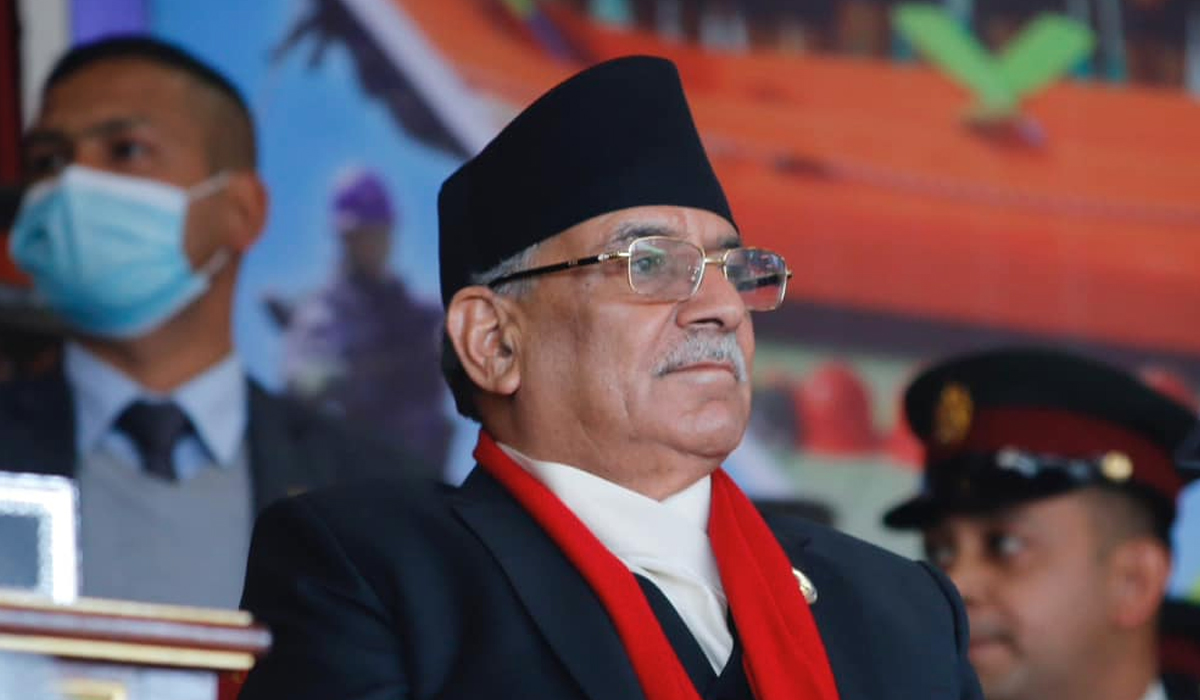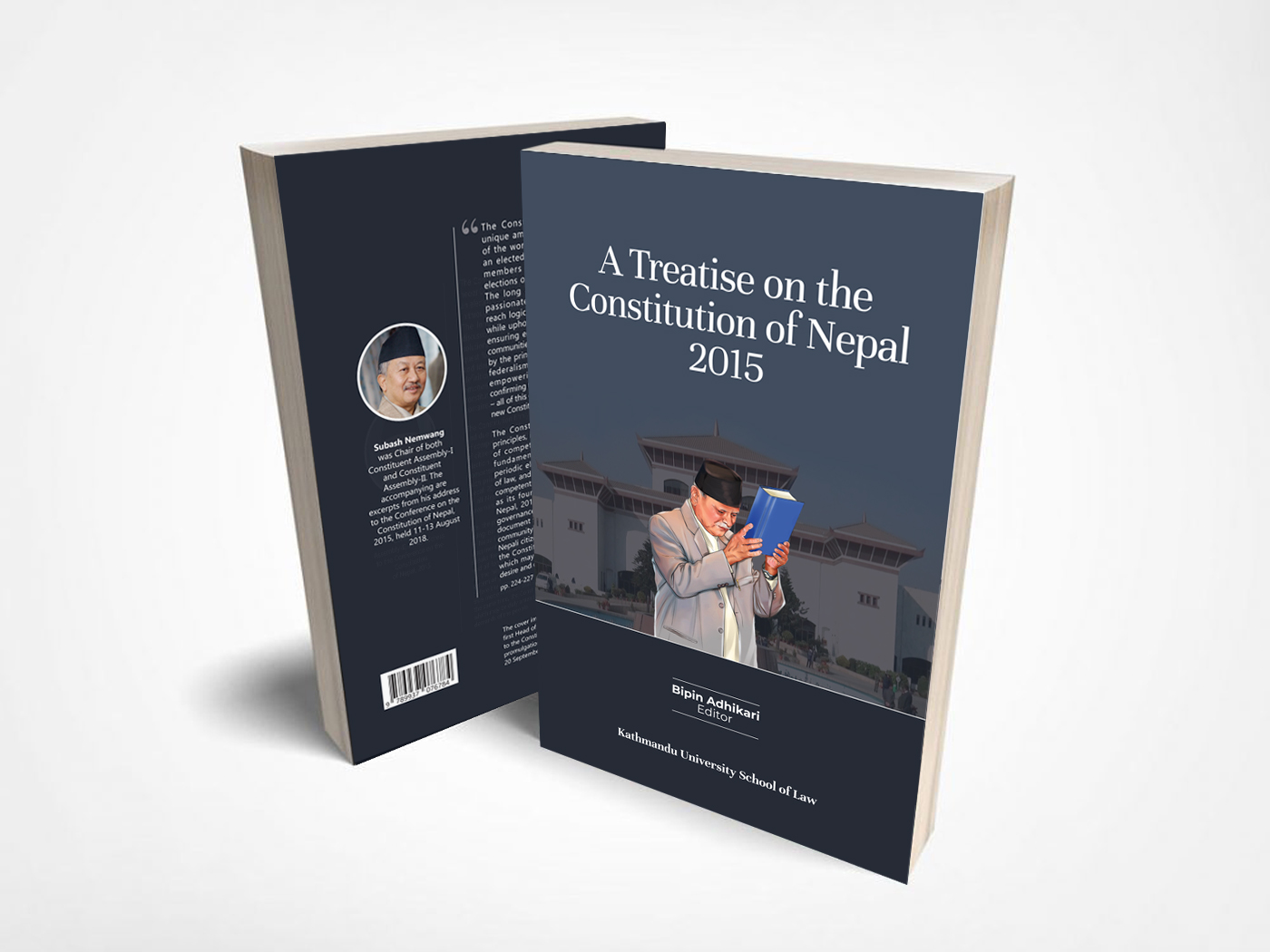KATHMANDU, July 12: Prime Minister Pushpa Kamal Dahal-led government collapsed on Friday, 18 months after its formation, as Dahal failed to secure the requisite majority support during a floor test in the federal parliament. Dahal has been relieved of the post of the country’s chief executive, although the Office of President has designated him to take care of day-to-day governance until a new government is formed.
During the trust vote sought by him, Prime Minister Dahal received 63 votes while 194 votes were cast against him with one lawmaker abstaining from the voting process. A total of 258 of the 275-member of the HoR were present during the voting on Friday. Dahal’s failure to secure a minimum of 138 votes led to his automatic removal from office.
Prime Minister Dahal asked for a vote of confidence in the House of Representatives on Friday according to Article 100 (2) of the Constitution after one of the key coalition partners– the CPN-UML– withdrew its support to his government following an agreement between the Nepali Congress and the UML on July 1.
UML Chairman Oli is set to stake a claim to the post of prime minister as per the agreement reached between the NC and the UML. Following the failure of Prime Minister Dahal to secure majority votes in parliament, President Ram Chandra Paudel held consultations with constitutional experts on the formation of a new government.
According to a source at the Office of the President, President Paudel invited legal and constitutional experts including Dr Bhimarjun Acharya, Dr Bipin Adhikari, Harihar Dahal, Shambu Thapa and Gopal Krishna Ghimire for the discussion. The meeting was held at the Office of the President.
The meeting follows the expression of differing opinions by constitutional experts regarding the process of forming the next government. While some experts have suggested forming a new government under Article 76 (2), others have stressed Article 76 (3) of the Constitution of Nepal.
President Paudel has asked Prime Minister Dahal to continue taking care of day-to- day governance until the next government is formed as per Article 77 (3) of the constitution.
Friday’s trust vote was the fifth time Dahal tested himself on the floor after his appointment as prime minister some 18 months ago. During the first confidence vote on January 10, 2023, PM Dahal received a strong support with 268 votes from parties including the NC, the UML, the Rastriya Swatantra Party, and others, while two lawmakers belonging to the Rastriya Janamorcha and Nepal Workers and Peasants Party opposed him.
Despite being in opposition, the NC supported Dahal. On March 20, 2023, after the UML-Maoist alliance broke, Dahal secured 172 votes from the NC, Maoist Center, and other parties. There were 89 votes cast against him by the lawmakers of UML and RPP, with one neutral vote.
In the third vote of confidence held on March 13, 2024, after forming a new alliance with the UML, Dahal received 157 votes including those from the UML, Maoist Center, and other coalition partners. He faced 110 opposing votes from the NC, LSP, RPP, and Rastriya Janamorcha, while one lawmaker chose to abstain from voting.
On May 21, 2024, following the JSP split, Dahal secured 157 votes with no opposition votes registered. The NC, RPP, JSP, LSP, and Rastriya Janamorcha abstained, advocating a parliamentary probe into cooperatives fund misappropriation, with one neutral vote from the Nepal Workers and Peasants Party. With PM Dahal losing the vote on his fifth attempt, CPN-UML Chairman KP Sharma Oli is now expected to become the next prime minister with the support of the Nepali Congress.
In the lead-up to the voting in parliament, top leaders of various political parties put forth their views in the context of the trust vote taken by Dahal.
Prime Minister Dahal sharply criticized the recent alliance between the NC and the UML. Addressing parliament before the voting, Dahal accused the two largest parties of forming their coalition out of fear rather than shared principles.
“If the NC and the UML were united by common beliefs or goals, I would not be concerned. Instead, they are bound by a fear of good governance,” PM Dahal said.
While questioning if the public had approved this alliance, Dahal voiced concerns about potential regression and autocracy, asserting that the NC and the UML had joined forces as good governance began to take root in the country. He argued that, in a healthy democracy, the main opposition party should not form the government, accusing the NC and the UML of pushing the nation toward regression.
NC Chief Whip Ramesh Lekhak responded to Dahal’s accusations by defending the NC’s commitment to safeguarding the constitution and democracy. “It is a party that has made history by aligning the most prominent anti-democrats in the history of democracy. We should refrain from making comments based on imagination and assumptions. This constitution was brought by us. We will protect it. There is no need for instructions for this,” he said.
Lekhak also emphasized that amending the constitution requires consensus among all parties and not just unilateral decisions by two parties.
Deputy Prime Minister and Home Minister Rabi Lamichhane, who is also the chairman of Rastriya Swatantra Party (RSP), claimed that the two biggest parties in parliament had come together overnight because of his party’s campaign for good governance. “Our voters often ask us, what did you do after joining the government? Today, I want to tell all my 1.2 million voters with pride – look! We launched such a campaign for good governance that two major parties of the country came together overnight. What else is there to be done?” he asked.
Lamichhane also questioned the legitimacy of the overnight agreement between the NC and the UML. “We will only know who is being protected in the name of safeguarding the constitution once the agreement is made public. However, my party and I cannot accept that it is an agreement to safeguard the constitution. There can be a consensus but there can never be a national consensus. How did the nation and the constitution suddenly become the causes for concern overnight? Is there a crisis in the country? Was there an attack from somewhere?” he asked.


